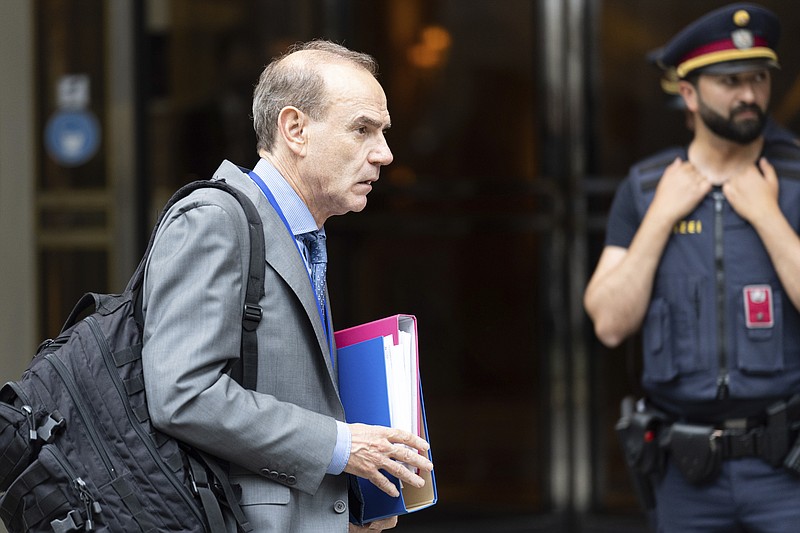VIENNA -- Delegations from Russia and the United States involved in nuclear negotiations with Iran held talks in Vienna on Monday, two days ahead of a summit between President Joe Biden and Russian President Vladimir Putin.
The U.S. is not directly involved in the negotiations but has regular contacts with participating diplomats. Efforts to revive the 2015 nuclear containment deal for Iran are a rare topic of collaboration between the two global adversaries.
Mikhail Ulyanov, a senior diplomat who headed the Russian delegation at the meeting in Vienna, called the talks with U.S. counterparts "fruitful."
"Our dialogue in Vienna seems to be proof that the two countries can maintain businesslike cooperation on issues of common interest, non-proliferation in this particular case," Ulyanov tweeted.
Iran, however, warned there was "little time left" for world powers to revive the deal as efforts to clinch an agreement before a key election failed to overcome the main sticking points over the weekend.
Saeed Khatibzadeh, spokesman for Iran's Foreign Ministry, said "technical, political, legal and practical issues remain," while insisting there was no impasse at the talks. He said a broad agreement to lift U.S. sanctions on Iran's industrial sectors, including energy, had been reached, but gave no details.
The nuclear agreement was thwarted in 2018 when the Trump administration pulled the U.S.out, arguing that it handed Iran too many concessions.
Diplomats from China, Germany, France, Russia and Britain held joint talks with Iran on Saturday and multiple bilateral meetings afterward in the Austrian capital. Russia was keen to curb some of Iran's ambitions, said Matthew Rojansky, director of the Wilson Center's Kennan Institute in Washington.
"Moscow still prefers to see Tehran checked in its aspiration to develop a weapon, but is much less motivated when it comes to checking Iran's regional ambitions and its broader global misbehavior," he said. "At the same time, Russia has a balancing act to perform in Syria, where Iran's force of arms on the ground could become a problem for Russian ambitions."
The 2015 agreement was designed to keep Iran's nuclear program peaceful, imposing strict controls on uranium enrichment levels as well as the technology and facilities used for the process. Iran stopped abiding by those limits after the U.S. withdrawal but insists it has no plan to build nuclear weapons.
Oil markets are closely watching the negotiations for any clues as to when the OPEC member will be able to resume crude sales and how quickly Washington will allow it to ramp up production.
"It's possible an eventual deal could involve a series of steps regarding compliance and lifting sanctions. Neither side want to give up any leverage," said Robin Mills, chief executive of Dubai-based consultancy Qamar Energy.
On Saturday, Iran's lead envoy in Vienna, Abbas Araghchi, said a deal was unlikely before the presidential election in his country Friday. President Hassan Rouhani -- who negotiated the original deal -- is due to leave office in August after serving two terms.
He is widely expected to be replaced by Ebrahim Raisi, a cleric who is hostile to engaging with the U.S. He's said he will continue backing the deal but will make it a more "marginal issue" for Iran if he's elected.
Even though the Iranian election is hanging over the talks, "we are seeing from all delegations a willingness and seriousness to address the open questions and also solve the complex issues," foreign ministry spokeswoman Andrea Sasse said Monday at a news conference in Berlin.
Information for this article was contributed by Derek Gatopoulos of The Associated Press and Arsalan Shahla of Bloomberg News (WPNS).
